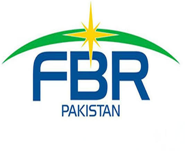INP-WealthPk
Abdul Ghani
The Federal Board of Revenue (FBR) has proposed significant amendments to Pakistan’s Barter Trade Mechanism (SRO 642(I)/2023) in order to address operational bottlenecks faced by traders conducting barter trade with Iran, Afghanistan, and Russia, according to a document exclusively available with Wealth Pakistan.

The proposals were drafted following extensive consultations with the Ministry of Commerce and public and private stakeholders, as well as subsequent deliberations with the State Bank of Pakistan (SBP), the Ministry of Foreign Affairs (MOFA), and the Pakistan Single Window (PSW).
The barter trade framework, launched on June 1, 2023, was designed to facilitate non-cash trade with neighboring countries. However, businesses soon raised serious concerns over cumbersome verification procedures, rigid sequencing of imports and exports, and restrictions on consortium contracts. The Senate Standing Committee on Commerce also took notice and directed the ministry to review and improve the mechanism.
According to the updated status report, several key changes have been proposed to simplify operations. The existing list of importable products specified in the SRO may be removed and aligned with the broader Import and Export Policy Orders. The requirement of verification of sanctioned and non-sanctioned entities by Pakistan Missions or MOFA is expected to be replaced with self-undertakings from private entities, affirming compliance with UN and international sanctions.
Additionally, the condition of “import followed by export” may be replaced with a more flexible “imports/exports” formula. The amendments also allow private entities to form consortiums for barter trade, enabling two or more Pakistani firms to enter into contracts with foreign partners jointly. Traders will be required to net off the value of goods on a quarterly basis—within 120 days of transactions—under Customs’ regulatory oversight.
To ensure safeguards, FBR has suggested that both Pakistani traders and foreign chambers of commerce provide undertakings confirming that contracting entities are not sanctioned. It has also proposed inserting a clause making all consortium members jointly and severally liable under the Customs Act, 1969, and the Imports & Exports (Control) Act, 1950.
While MOFA and SBP have conveyed concurrence on the revised framework, the PSW has pointed out that undertakings uploaded by traders on the WEBOC platform cannot be electronically validated, leaving Customs responsible for confirming the non-sanctioned status of entities.
A revised draft notification, incorporating these recommendations, has already been vetted by the Law Division. The Ministry of Commerce has initiated the process for Federal Cabinet approval, after which an amended SRO will be issued to operationalize the reformed barter trade mechanism.
Officials believe that these reforms are crucial for unlocking regional trade potential and easing liquidity and sanctions-related constraints faced by Pakistani exporters and importers.
Credit: INP-WealthPk









